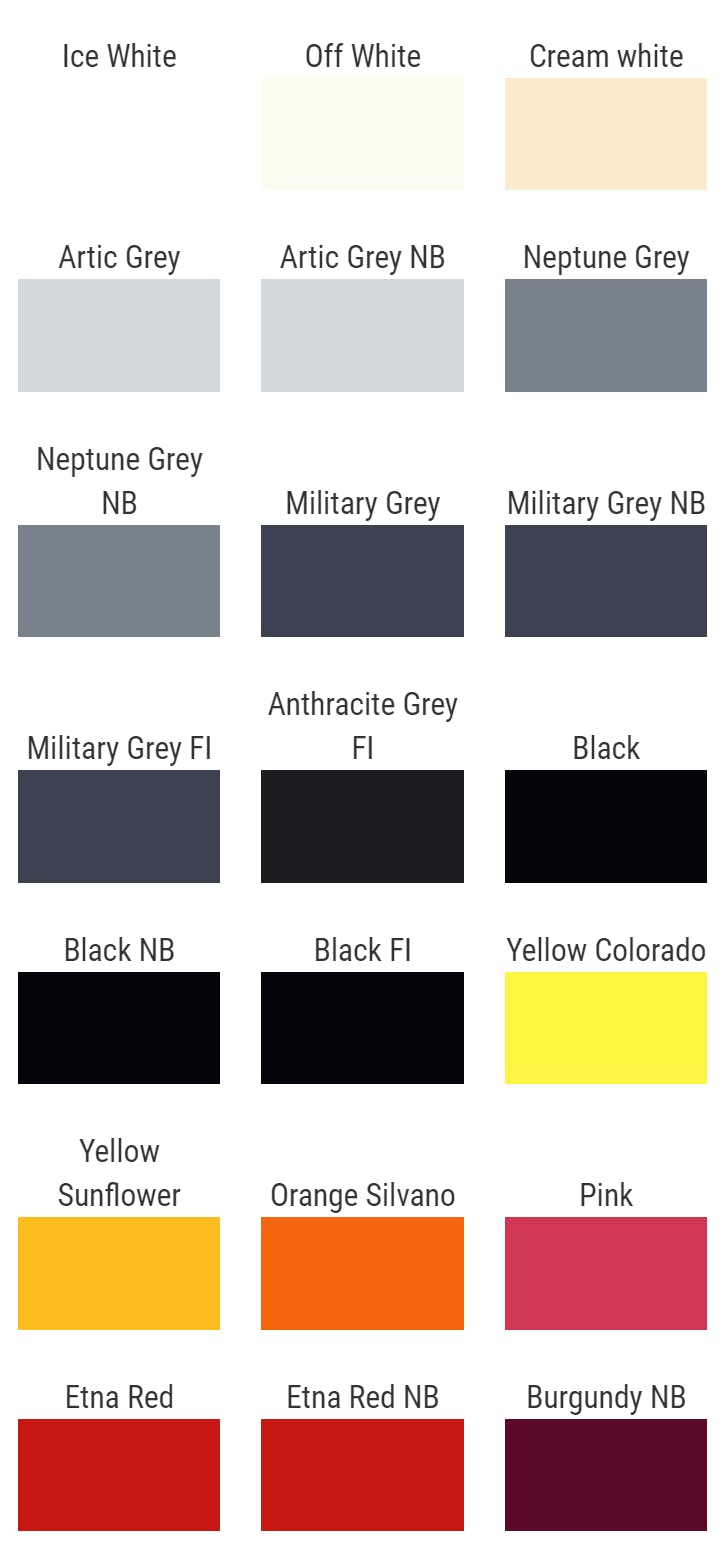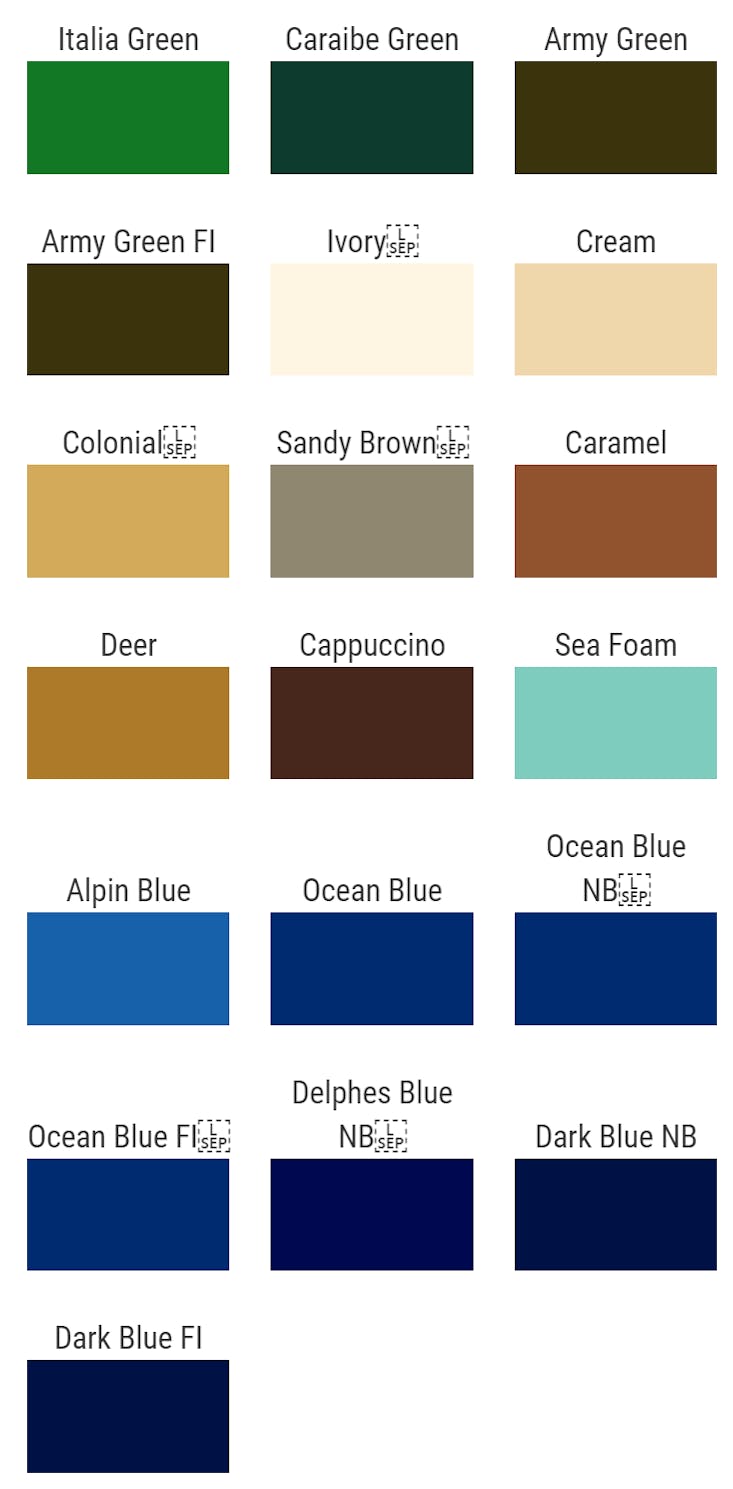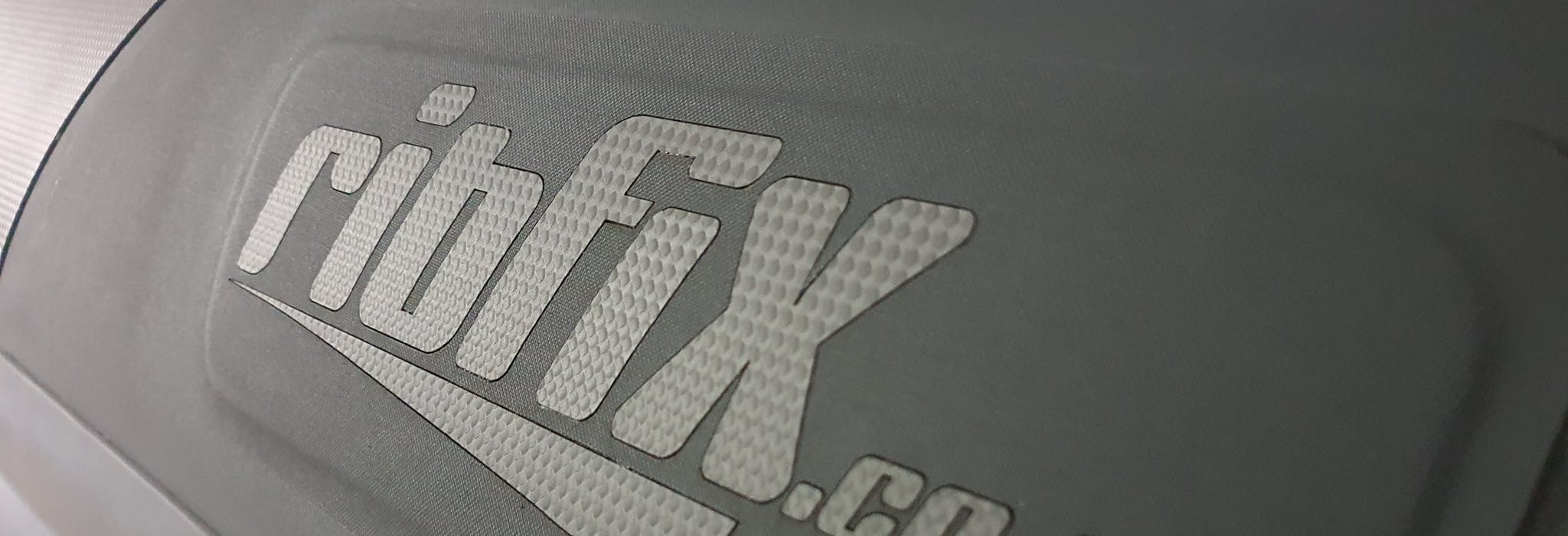
Orca Hypalon technical information and colour charts
Technical information about Orca Hypalon and its range of fabrics, textures and make up.
what is inside ORCA hypalon?
Hypalon was a chlorosulfonated polyethylene (CSPE) synthetic rubber (csm) orca Hypalon as it is now known in the marine industry today is a remarketed version of the old Hypalon using an additional layer of Neoprene (cr) so Orca's new chemical formulation is CSM/CR.
Hypalon layers consist of
Chlorosulfonated polyethylene (CSM)
A thin mesh weave for strength
Neoprene (CR)
Here is an exploded diagram and construct technical information
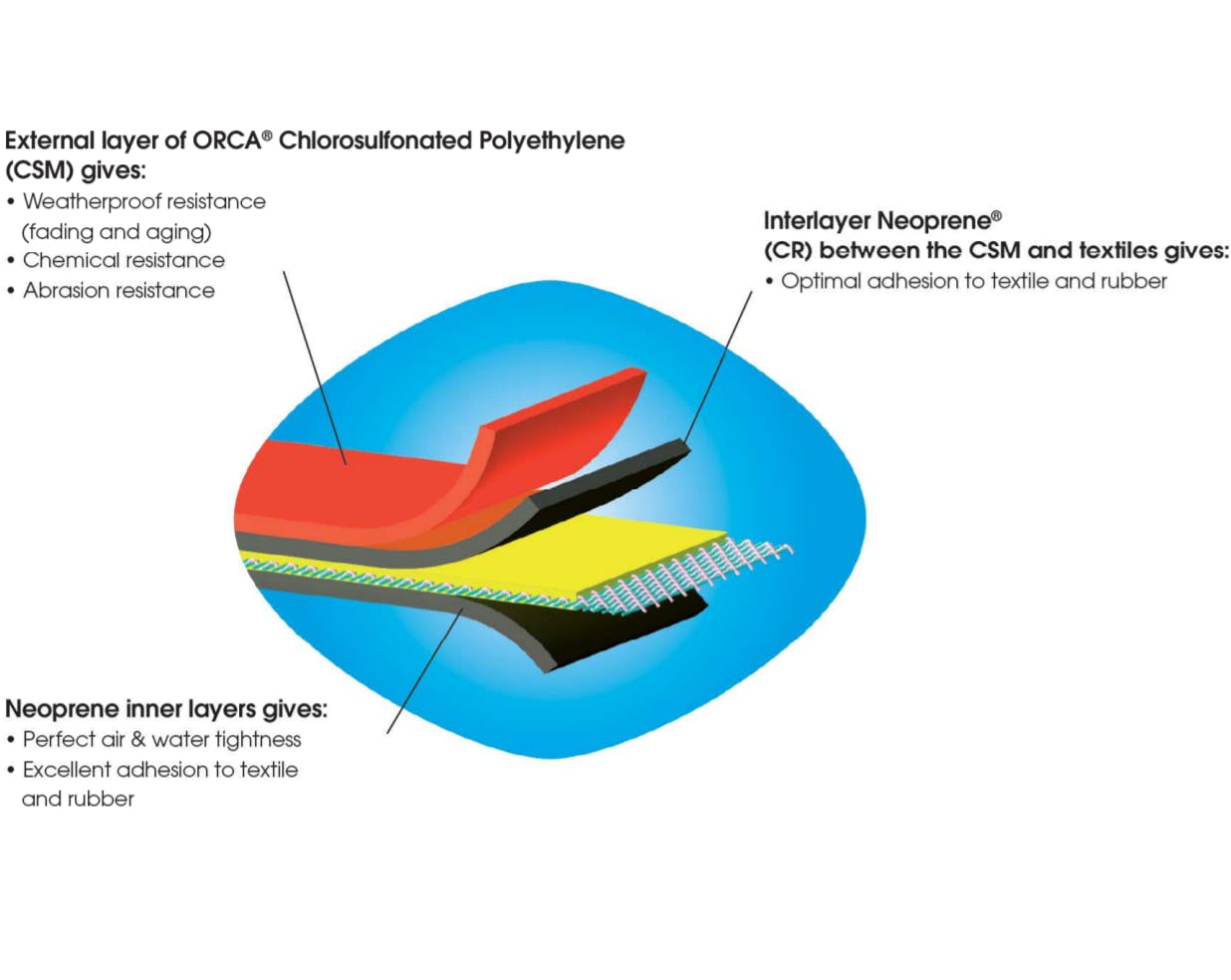
These are the different textures that can be available for your rib retube
- Fabric impression : is less shiny, as used in many military, commercial applications
- Perlage : is a newer fabric by orca and is used for tubes , wear patches it has a similar look to pingpong racket but the fabric is less grippy but more durable
- Carbon : a favourite in the leisure boat market, gives off a satin shine in the light, durable, and stylish.
- Matt : also known as smooth is most commonly used of all Hypalon material, its hard wearing and shiniest of the options.
- Honeycomb : very similar to carbon with the slight difference it has a honey combe texture as apposed to carbon Fiber impression
For more information about orca Hypalon and a selection of colour charts click here.

Here is a chart of orca hypalon 828 1100dtx-990 deniers colour chart
Orca 828 Hypalon is suitable for most inflatable tube applications but it is advised to use 866 heavyweight on boats over 6.5m or commercial ribs
nb = Non buff, so this fabric doesn't necessarily need sanding in the back
FI= Fabric impression, textured front making the fabric more matt look
cr= Neoprene
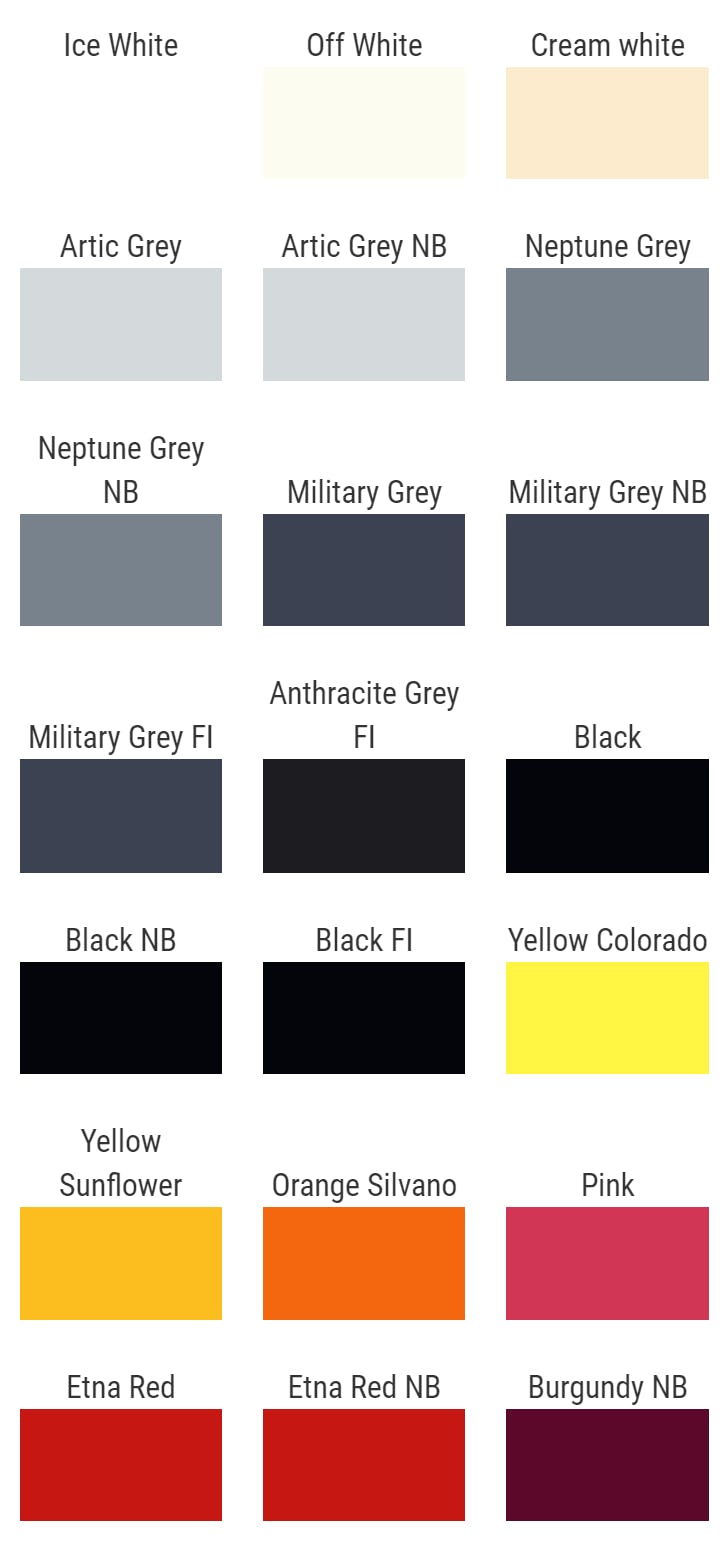
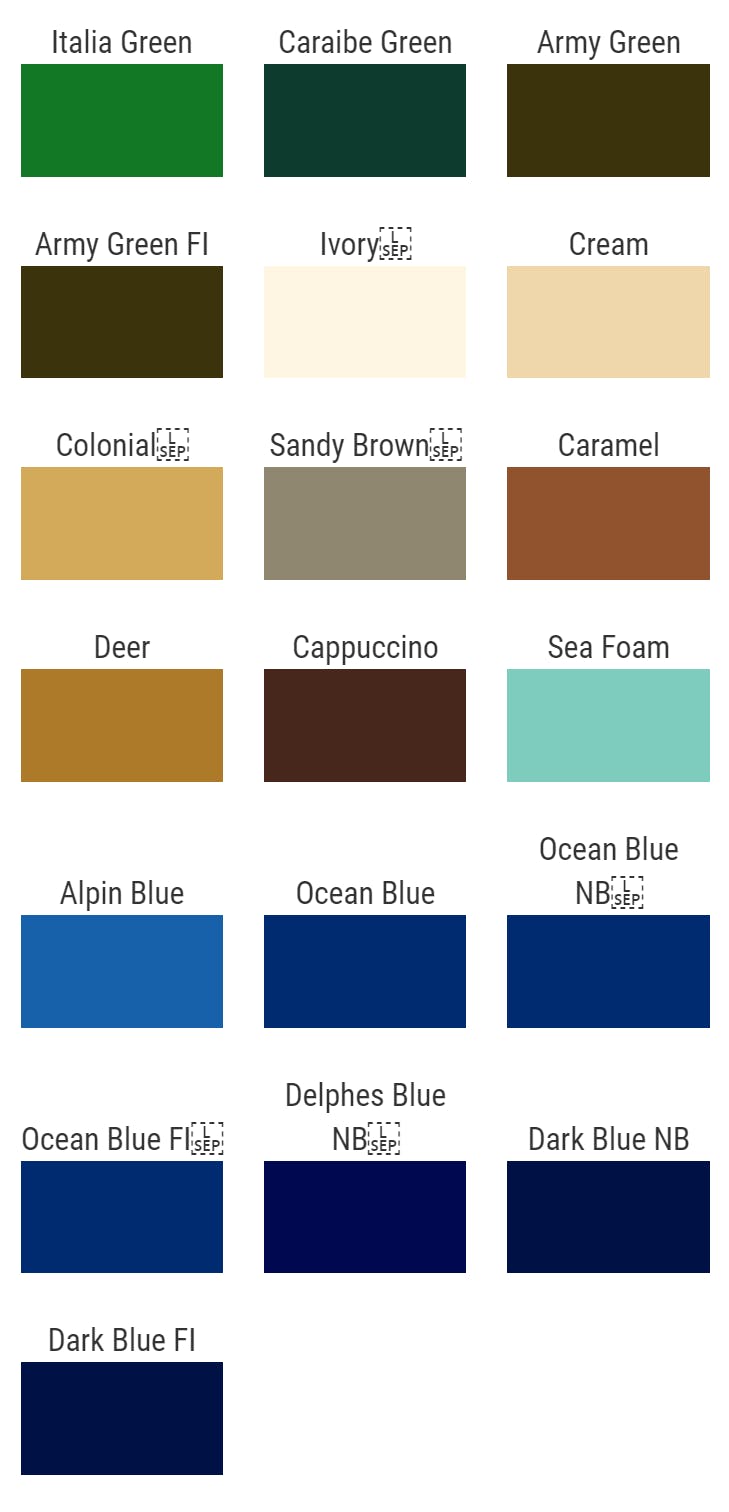
Here is the orca Hypalon 866 1670dtx-1500 deniers colour chart
Orca 866 hypalon is also known as heavyweight, within this weight of fabric there are many different textures and colours available.
This is the fabric of choice for commercial ribs and work boats, it is more durable and less prone to abrasive leaks, however you would still be better off covering the tubes in some thicker harder rubber to protect it from wear and scrapes.
